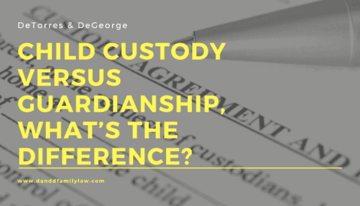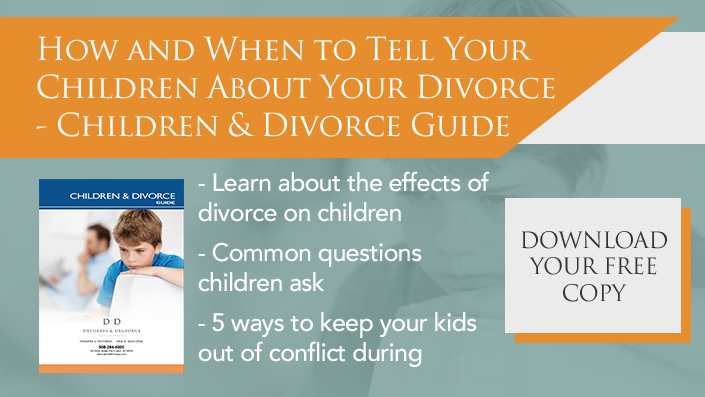 When people are going through a divorce, they are often faced with issues of child custody. This deals with the custody of the child or children, as well as the additional issues of child support and visitation. People are often very concerned with how to get custody of their children. While each parent’s prior involvement in the children’s lives are considered, it is not the deciding factor. Instead, the court will base its decision on the best interests of the child which takes into account many factors in deciding who gets custody of the kids.
When people are going through a divorce, they are often faced with issues of child custody. This deals with the custody of the child or children, as well as the additional issues of child support and visitation. People are often very concerned with how to get custody of their children. While each parent’s prior involvement in the children’s lives are considered, it is not the deciding factor. Instead, the court will base its decision on the best interests of the child which takes into account many factors in deciding who gets custody of the kids.
It is also important to differentiate between the types of custody in New Jersey. When you are seeking legal advice on the issue of child custody, it is necessary to ensure that these differences are clearly explained to you. Specifically, there are two types of child custody: legal and physical. In the majority of situations in New Jersey, parents share joint legal custody of their children which means that they share in the decision making process for major aspects of their children’s lives, including their education and health. Physical custody refers to who the child physically resides with. Often this is designated as the parent of primary residence or the parent of alternate residence depending on the amount of visitation, known as “parenting time” in New Jersey, with each parent.
The amount of child support you may be ordered to pay for your child is related to the custody and visitation schedule in your case. Specifically, the number of overnights you have with the children may impact the amount of child support you are required to pay. Generally the legal custody designation does not impact the child support calculation.
Custody of the kids continues through the children’s emancipation, which generally means their 19th birthday or completion of college, depending on what the parties might have agreed to. In many cases, physical custody may no longer truly apply due to a child’s residence at school. However, parents may still share legal custody as far as the child’s educational decisions.
Guardianship generally applies after an individual’s 18th birthday. Upon reaching age 18, New Jersey views the individual as an adult and parents can no longer make decisions on behalf of the child. In the event that an adult child is unable to make decisions about his or her life, such as medical care, a guardianship may be one way to ensure that a competent adult is assisting in the care of the person. In order to obtain a guardianship, an application must be made that includes a current assessment by a mental health professional or a medical doctor with regard to the need for a guardianship. Guardianships are not permanent in New Jersey and may be adjusted as necessary. Many of the same functions of a guardian can be met by obtaining a power of attorney on behalf of the incapacitated adult and is another option for people in this situation to consider.
There is also the potential for a kinship legal guardian. In this case, children do not live with their parents for a period of at least 12 months and the parent is unable to care for them. If a kinship legal guardianship is granted, the guardian has the same rights as a parent and the same decision making power. The birth parents of the children can continue to visit with the children, but will not have the power to make day to day decisions. The parents may also have an obligation to pay child support for those children in this situation.
If you have a questions regarding child custody or guardianship of a child, call DeTorres & DeGeorge, LLC at 908-284-6005 or 973-264-4100 to schedule a consultation with one of our experienced attorneys.


 START LIVE CHAT
START LIVE CHAT











